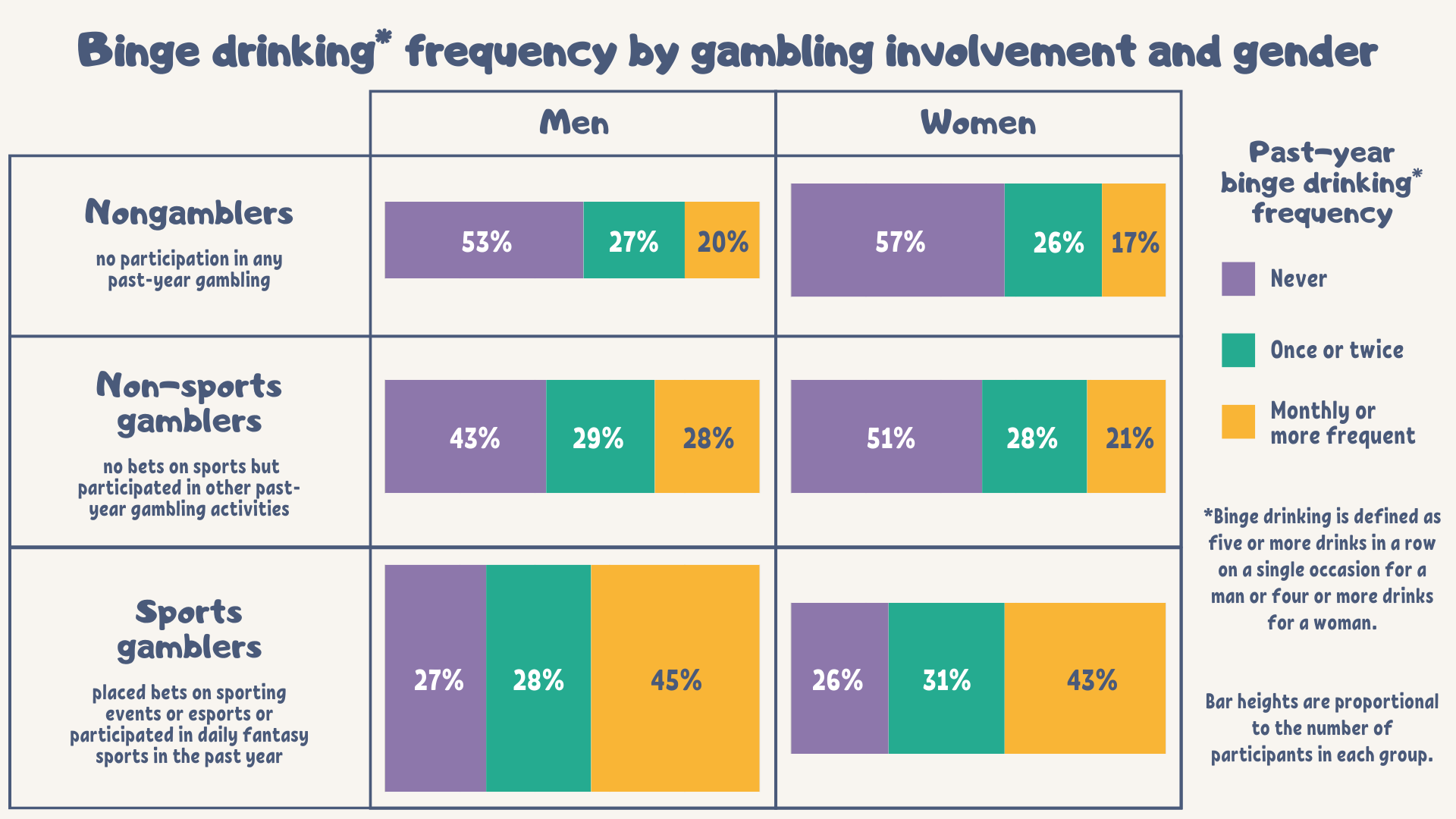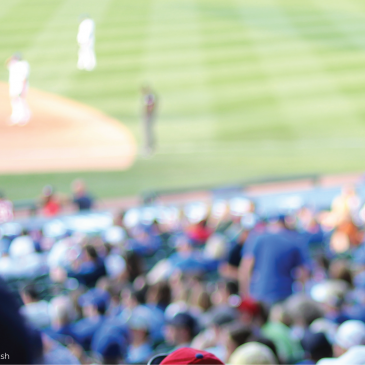Alcohol use and misuse often co-occur with gambling problems. In particular, sports gamblers report higher alcohol consumption, more frequent drinking, and more problematic alcohol use than people who don’t bet on sports. This week, The DRAM reviews a study by Joshua B. Grubbs and Shane W. Kraus that examined the association between sports gambling and binge drinking among adults in the United States.
What was the research question?
Among adults in the United States, is sports gambling associated with binge drinking?
What did the researchers do?
The researchers asked 4,363 adults in the United States to report their age, race/ethnicity, gender, past-year binge drinking frequency, past-year sports gambling involvement, and past-year non-sports gambling involvement. Within each gender, the researchers compared binge drinking frequency between nongamblers, non-sports gamblers, and sports gamblers. Participants who did not identify as a man or a woman were not included in the analysis.
What did they find?
Compared to nongamblers and non-sports gamblers, both men and women sports gamblers were more likely to report monthly or more frequent past-year binge drinking and less likely to report no past-year binge drinking (see Figure). After adjusting for age and race/ethnicity, this association between sports gambling and binge drinking still remained.

Figure. Past-year binge drinking frequency by gambling involvement and gender. Bar heights are proportional to the number of participants in each group. Nongamblers had no participation in any past-year gambling. Non-sports gamblers had not bet on sports but participated in other past-year gambling activities. Sports gamblers had placed bets on sporting events or esports or participated in daily fantasy sports in the past year. Click image to enlarge.
Why do these findings matter?
Sports gamblers may be especially susceptible to risky drinking behaviors, such as binge drinking. However, the association between sports gambling and drinking behaviors might not be direct, as sports fandom could be influencing sports gambling and drinking behaviors separately. For example, previous studies have found that college students drink more at tailgate parties and during March Madness. Education about sports gambling problems and risky drinking behaviors may be particularly important for sports fans.
Every study has limitations. What are the limitations in this study?
We cannot conclude any causality between sports gambling and binge drinking due to the cross-sectional study design. Also, the researchers recruited participants via an online panel called YouGov. Online panels tend to report higher rates of problem gambling and substance use, so the results may not be generalizable to the broader population.
For more information:
The National Institute on Alcohol Abuse and Alcoholism has tips and resources for people struggling with problem drinking. For additional drinking self-help tools, please visit our Addiction Resources page.
— Caitlyn Matykiewicz, MPH




